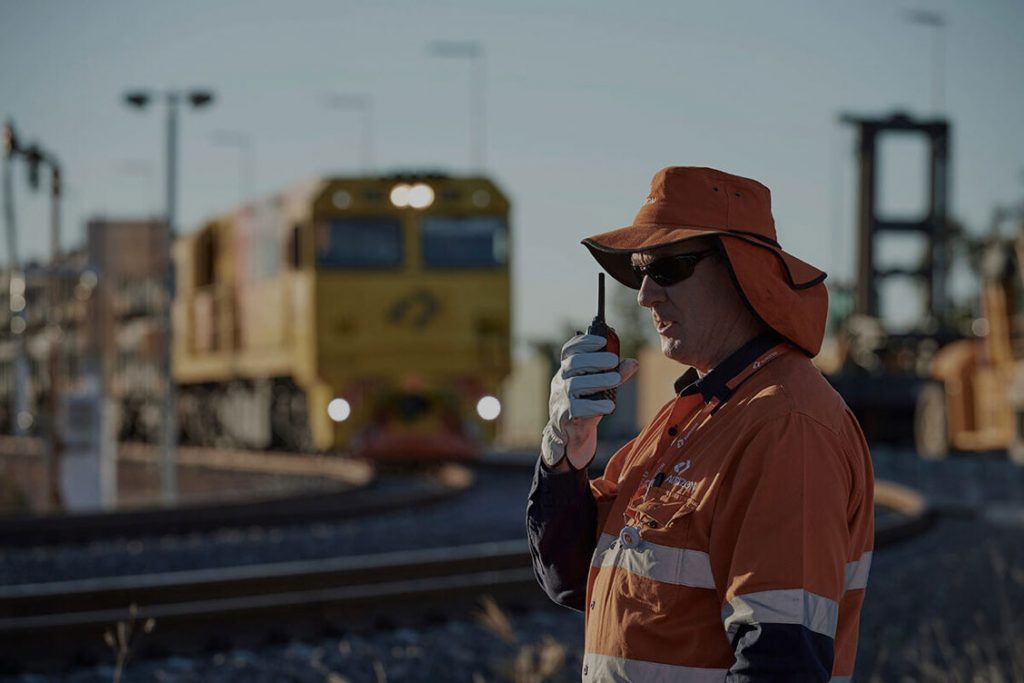
How Aurizon’s pioneering use of Microsoft Fabric is helping it get closer to its predictive analytics and optimisation goals
Aurizon is Australia’s largest freight rail operator, transporting more than 250 million tonnes of containerised freight and bulk products such as coal, iron ore and agricultural freight annually across the country.
The Australian transportation giant offers customers integrated freight and logistics solutions across its extensive rail and road network. As a result, it’s able to connect miners, primary producers, and industry to international and domestic markets. Aurizon, along with the wider transport and logistics industry, plays a key role in underpinning Australia’s export and trades, powering resource-intensive industries like mining, and supporting the nation’s supply chain resilience. To play this role effectively, Aurizon is looking to its data to inform how it develops capabilities and strategies that can ensure efficiency and sustainability.
Aurizon’s fleet of locomotives is over 700 strong, with nearly 400 of those now fitted with sensors that relay telemetry data back to Fabric in real-time. The majority of these locomotives send 1,000 channels of data per second, which equates to nearly 250 gigabytes of this data collected every day.

To help it make full use of this new influx of data, Aurizon has developed a three-year modernisation project to reimagine its entire analytics platform. It is focused on combining its enterprise and operational data with real-time condition sensor data to supercharge the value it can get out of its data.
By combining its data on a single platform, Aurizon hopes to unlock enhanced industry capabilities made possible with real-time data processing. These include resource allocation optimisation, supply chain visibility, locomotive monitoring, energy efficiency and sustainability targets, and predictive maintenance.
“We needed to move from a more traditional data warehouse to a modern analytics platform that can scale and combine our enterprise and operational data with our sensor data,” says Jon Tew, Leader Data Engineering at Aurizon.
Microsoft Fabric was announced at just the right time and aligned very well with all the underlying architectural decisions. It’s also a strong fit in terms of capability, and we were able to cleanly swap out several tools we were initially going to use with the single Microsoft Fabric Platform.
Leveraging its long-term, trusted partnership with Microsoft, Aurizon signed up to be part of the Microsoft Fabric preview program, working with the Customer Advisory Team, Microsoft engineers and Global Black Belts to receive resources and support as they developed initial use cases for improved data warehousing, analytics, and predictive analytics.
Microsoft Fabric for data warehousing

A significant percentage of Aurizon’s cost base is associated with buying and maintaining assets. Leveraging data and analytics to increase efficiency around maintenance is a critical element of its cost-saving strategy. Its data also presents many opportunities for optimisation around crew rostering, yard management, scheduling and daily operations.
Previously, the company had a legacy on-premises system, SAP HANA, for all its operational and enterprise data and used Microsoft SQL Server for its sensor and telemetry data. Aurizon also used HANA for real-time virtual modelling, a capability the company wanted to maintain alongside the greater scalability and efficiency of a new solution.
With Microsoft’s support, Aurizon has found a fit for purpose solution in Microsoft Fabric.
“We are already a Power BI shop, so Microsoft Fabric’s commercial and technical integration with Power BI was very attractive to us,” says Chris Nunn, Principal Data Engineer at Aurizon.
“We’re also benefitting greatly from Fabric’s data streaming capability and DirectLake Power BI consumption as an answer to HANA’s virtual modelling capability, allowing us even greater scalability.”
Data analytics for predictive maintenance
One of Aurizon’s priorities is expanding real-time data processing and analysis capability. Microsoft Fabric’s streaming architecture can be a critical technical differentiator as it allows for direct data consumption without duplicating data or making high central processing unit (CPU) demands. As a result, it could replace the need for Aurizon to create and maintain data sets in the future.
Microsoft Fabric can achieve this by providing Aurizon with a unified product that integrates every aspect of its data estate via an open software as a service (SaaS) analytics and AI platform.
The Power BI integration in Microsoft Fabric ensures data sets no longer need to be imported and can instead be accessed using Power BI DirectLake. In short, they are loaded from a data lake straight into the Power BI engine – ready for analysis.
Aurizon is already seeing the benefits of bringing together its enterprise data and sensory data in this way. The performance of queries, such as requests for information or actions performed on the combined data, has improved significantly. Due to the ease with which compute can be scaled, performance gains of up 240x have been realised.
In the longer term, the organisation plans to leverage Azure Machine Learning and Copilot in Microsoft Fabric and Power BI to further improve decision-making and analysis.
“We can foresee how Microsoft Fabric will support our developing data strategy over the next five years,” says Tew.
Our aim is to drive better outcomes for our customers using data and predictive analytics to transform business practices including predictive maintenance, optimised rostering and efficient use of resources.
Partnering to enable future growth
Aurizon has worked with Microsoft’s Customer Advisory Team and Global Black Belts to help it navigate the platform. This included engaging with Microsoft’s Enterprise Voice program to evaluate and influence new features as product teams release them.

“Aurizon has a very complex data environment, with a mix of legacy systems, on-prem and cloud solutions that services a billion dollar business. With Microsoft Fabric, we’ve answered many of our questions about navigating future growth, to remove legacy systems, and to streamline and simplify our architecture. A trusted data platform sets us up to undertake complex predictive analytics and optimisations that will give greater surety for our business and drive commercial benefits for Aurizon and our customers in the very near future,” says Tammy Wigg, Chief Data Analytics Officer at Aurizon.
“Putting our emerging technology into the hands of powerful companies like Aurizon allows us to build and deliver solutions that fundamentally meet the needs of our most important industries and enables them to drive future growth – not just within their organisations but for Australia’s transportation industry as a whole,” says Sarah Carney, Chief Technology Officer at Microsoft Australia and New Zealand.














